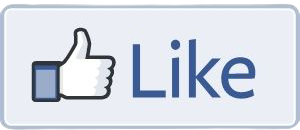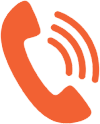Facebook to Remove the 'Like' Button: What to Expect
08-Apr-2021 | Social Media
Facebook as a global social network probably needs no introduction.
But what many don’t know is that it has roughly 2.7 billion monthly active users worldwide.
From this, did you know that a whopping 320 million users come from India alone? This makes it a leader among countries when you consider the size of the audience. Of course, both these numbers point at the huge reach and influence it enjoys as the world’s leading marketing and advertising platform (along with Google). It’s no wonder that advertisers have always prioritized this platform when designing a social media marketing strategy.
Providing news, topics of general interest alongside interaction with friends and family – Facebook has found itself intricately woven into the lives of millions. This range and scale has translated into a 43% increase in Facebook’s revenue from Rs. 893 crore (back in 2019) to Rs. 1,277 crore.
There’s no doubt that Facebook is currently the world’s most used social media!
But there is a new change that is bound to create attention in the following months.
Facebook has removed the ‘Like’ button from public pages!
Here’s what you need to know about it.
Why Facebook is Set to do Away with ‘Likes’ in 2021
 Everyone knows about Facebook’s blue and famous ‘thumbs up’.
Everyone knows about Facebook’s blue and famous ‘thumbs up’.
But not many know that it was first called the ‘Awesome’ button. This was only officially launched as ‘Like’ in 2009 when it was finally approved almost two years later. Today, it stands as Facebook’s most distinguished trait and among its most prominent features. This was assisted by other responses (or Emojis) later on such as a Wow, Angry, Love and Yay.
Twitter and YouTube followed suit shortly in 2015 and 2010 respectively with like buttons of their own. And now almost every App or website comes with its own unique source of expressing approval of content. This has played a huge role for media planners and advertisers when creating a social media marketing strategy.
But with the changes announced on the 6th of January, 2021, Facebook has removed the ‘Like’ button from public pages which vary across artists, public figures and brands. This change was intended to bring about the following results:
- More ease in connecting with them
- Updated safety features
- Easy navigation between pages
- New and improved admin controls
- Enhanced focus on real followers
Facebook has stated that many ‘like’ a page but unfollow it after losing interest. This cannot be a metric when accounting for its popularity. Especially when we live in a time where we hit ‘like’ on pages as favours and requests (and you can literally pay for ‘likes’). Hence, Facebook takes this into account and states that the follower count of a page would be a far better indicator of both reach and popularity.
Unlike putting the limelight on the big thumbs up, this new redesign focuses on the news feed for conversation, interaction and engagement.
A lesser-known fact is that Mark Zuckerberg, CEO of Facebook, had actually kept the introduction of the ‘Like’ button on hold for two years. He initially wasn’t sold on the idea since he felt it would overshadow the share function and ability to comment. Unfortunately, he would go on to create a ‘Like’ culture that shapes the very reason we share or don’t share content – for Likes.
Here is a list of pros and cons of the ‘Like’ culture:
Advantages:
- Popularity is easily recognized
- Generates more trust
- Plays the role of motivation
- Fosters more engagement
Disadvantages:
- Means of approval and validation
- Creates an aura of competition and envy
- Prevents people from freely sharing what they like
- Hits self-esteem and makes users self-conscious
With time and change, ‘likes’ will take a backseat while other features such as ‘save’, ‘share’ and ‘comment’ rise in prominence. Or even better, the ‘like’ button may just cease to exist! Trials have already taken place in countries like Canada and Brazil with Instagram (with fairly positive results) and it won’t be long before Facebook makes this a reality someday.
Expect more focus on personal expression and less focus on those who ‘like’ it.
Stories need to be woven into great tales
and that is where we come in. We are small enough to enjoy the smaller accomplishments, yet agile enough to take on projects of all sizes.
Explore our body of work

